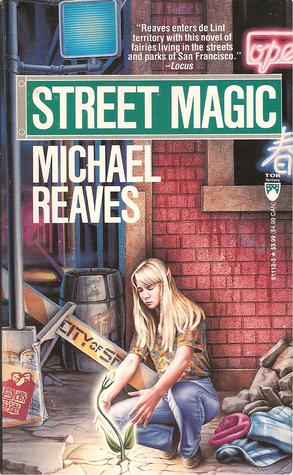Street Magic, by Michael Reaves, Tor
1991. This isn’t a new book, as you can see by the date. In fact,
I believe
it’s the first urban fantasy I read, along the lines of “elves in Manhattan.”
In this case, the city is San Francisco, but it could be any big, grimy, noisy
city that draws runaways, abandoned kids, and the disillusioned. It’s a fairly
short book, and by today’s standards quite simple, but in its time, the tropes
were sufficiently new to stand on their own without an overly elaborate plot. I
tried to step aside from the urban fantasy of the last 15 years and re-read it with
fresh eyes. The characters and elements that appealed to me then still do. The
ones that didn’t (like the street kid to whom magical creatures are drawn)
still don’t; however, what was once annoying I now see as a not-so-successful
exploration of a literary shorthand we now take for granted and that has not
weathered the years well.
My favorite characters included an
elderly woman bookstore owner (of course!) and the photographer who once
glimpsed a door into Faerie (at Muir Woods, of all places – where I visited
many times as a teen and college age student, hiking in the “back way” from my
parents’ house – well, redwood grove and magic do go together, or so I have
always thought), botched his chance to step through that door, and now has
descended into a haze of alcohol and regret. He’s not a major character and
doesn’t drive the plot, but the way he grapples with his yearning to find
Faerie again (and this time, seize the chance he missed before) in conflict
with living an ordinary, mortal life in an ordinary, mortal world touched me
deeply. Isn’t that what we all do – try to balance and integrate the unrealistic,
idealistic dreaming and the humdrum, hoping to forge lives that in some way connect
and nurture the miraculous?
The verdict: If you haven’t read it,
do take a look. It’s a short book and moves right along, and even after all
these years has something to offer, especially in the secondary characters. If
you missed it and you love urban fantasy, I commend this historical perspective
on the genre.

No comments:
Post a Comment